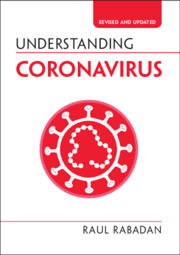Book contents
- Understanding Coronavirus
- Series page
- Understanding Coronavirus
- Copyright page
- Epigraph
- Dedication
- Contents
- Foreword
- Preface to the Revised and Updated Edition
- Preface to the First Edition
- Abbreviations
- 1 Introduction
- 2 How Is the Coronavirus Spreading?
- 3 What Is a Coronavirus?
- 4 How Is the Coronavirus Changing?
- 5 How Did the COVID-19 Outbreak Start and Evolve?
- 6 How Does the COVID-19 Outbreak Compare to the SARS Outbreak in 2003?
- 7 How Does the COVID-19 Outbreak Compare to Seasonal and Pandemic Influenza?
- 8 How Can We Treat the Virus and Prevent Infections?
- Conclusions
- Summary of Common Misunderstandings
- Suggested Further Reading
- Figure and Quotation Credits
- Index
- References
Suggested Further Reading
Published online by Cambridge University Press: 29 September 2021
- Understanding Coronavirus
- Series page
- Understanding Coronavirus
- Copyright page
- Epigraph
- Dedication
- Contents
- Foreword
- Preface to the Revised and Updated Edition
- Preface to the First Edition
- Abbreviations
- 1 Introduction
- 2 How Is the Coronavirus Spreading?
- 3 What Is a Coronavirus?
- 4 How Is the Coronavirus Changing?
- 5 How Did the COVID-19 Outbreak Start and Evolve?
- 6 How Does the COVID-19 Outbreak Compare to the SARS Outbreak in 2003?
- 7 How Does the COVID-19 Outbreak Compare to Seasonal and Pandemic Influenza?
- 8 How Can We Treat the Virus and Prevent Infections?
- Conclusions
- Summary of Common Misunderstandings
- Suggested Further Reading
- Figure and Quotation Credits
- Index
- References
- Type
- Chapter
- Information
- Understanding Coronavirus , pp. 121 - 130Publisher: Cambridge University PressPrint publication year: 2021

